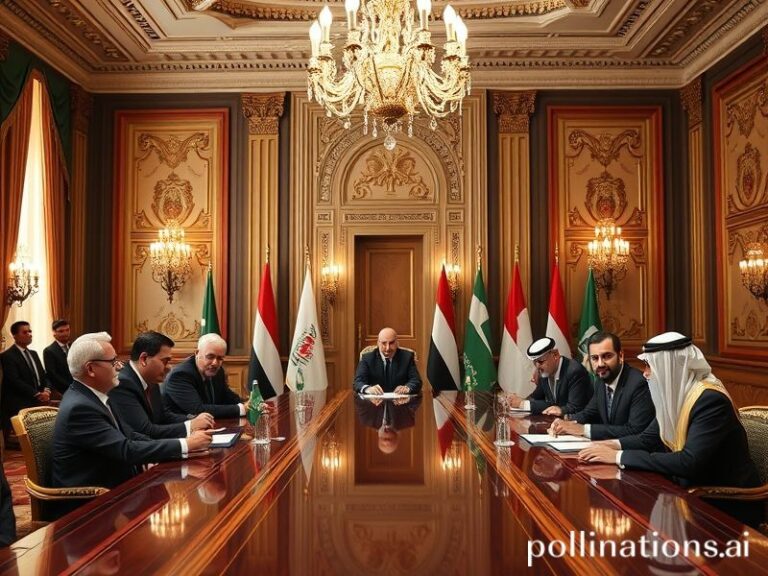Global Freeze-Frame: Why Juventus vs. Inter Still Captures the World’s Doom-Scrolling Eye
Juventus vs. Inter: When Football’s Cold War Finally Spills Out of Europe’s Deep Freezer
By Our Man in Turin (who still hasn’t thawed out)
TURIN—If you squint hard enough through the Alpine smog, the Derby d’Italia looks less like a football match and more like a summit of two failing superpowers trying to convince the planet they still matter. Juventus, the grand duchess of Italian football, and Inter, the Milanese arriviste with a Chinese ex-owner and an American hedge-fund babysitter, take the pitch on Saturday. The rest of the world—streaming at 3 a.m. in Jakarta, half-watching from office cubicles in New York, or doom-scrolling in Lagos—will witness a proxy war fought over bragging rights that haven’t been truly global since the fax machine died a noble death.
Let’s be honest: the match is marketed as “iconic,” but outside the boot-shaped peninsula it’s mostly background noise to a planet busy rehearsing its own collapse. Still, the broadcast rights have been sold from Singapore to São Paulo, because nothing says “catharsis” like watching millionaires in sponsored tights argue about handballs while glaciers commit suicide in real time. The global audience tunes in for the same reason we rubberneck at car crashes: schadenfreude is the last universally free commodity.
The geopolitical subplot is delicious. Juventus, fresh from a 15-point penalty for “creative accounting” (the club’s accountants apparently studied at the Enron School of Fine Arts), is clawing its way back toward respectability like a mobster on parole wearing an ankle monitor made of spreadsheets. Inter, meanwhile, just sold a minority stake to a U.S. fund whose name sounds like a Bond villain’s shell company. In other words, the match pits Old Money that got caught cooking the books against New Money that’s probably printing them on recycled crypto paper. Choose your poison, dear viewer.
On the tactical front, Massimiliano Allegri has resurrected the 1990s in both formation and facial expression—he now smiles once per fiscal quarter—while Simone Inzaghi has perfected the art of looking permanently aggrieved, as though VAR personally insulted his mother. Between them, they’ve spent roughly the GDP of Montenegro on players who will spend ninety minutes demonstrating that the human knee was never designed for such torque. Somewhere in Qatar, a stadium made of refrigerated air chuckles knowingly.
The worldwide implications? Well, every misplaced pass will be memed into oblivion within four seconds. A Chinese troll farm will blame American imperialism for the refereeing; an American podcast will call the offside rule “socialist”; and a Brazilian influencer will monetize the crying child in Row G. Meanwhile, the actual football—once a simple leather sphere kicked by factory workers on their day off—has mutated into a data-driven, NFT-encrusted spectacle whose carbon footprint could power Reykjavik for a month. But sure, let’s pretend the result will “shape the Scudetto race,” as if the trophy weren’t already pre-sold to the highest bidder with the best tax lawyer.
And yet, and yet… there remains something perversely noble about the whole charade. Strip away the hedge funds, the crypto sleeve patches, the dystopian betting apps, and you’ll still find 22 men running after a ball for reasons they can’t quite articulate. It’s the same urge that once sent Portuguese caravels plundering spice routes and now sends Korean teenagers into 72-hour gaming binges: the need to matter, even for a nanosecond, on a scoreboard that the universe will forget by Monday.
By full-time, half of Turin will be singing off-key about “la Vecchia Signora,” while half of Milan will insist moral victory tastes better than champagne. The rest of us will close the laptop, mutter something about late-stage capitalism, and go back to doom-scrolling about sea levels. But for 90 minutes plus stoppage, the planet pressed pause on its self-immolation to watch two Italian giants pretend the past isn’t prologue, the present isn’t bankruptcy, and the future isn’t just a streaming subscription auto-renewing at 4K resolution.
In that sense, Juventus vs. Inter isn’t merely a football match. It’s a planetary coping mechanism dressed in polyester, and we’re all complicit in the laundering.







